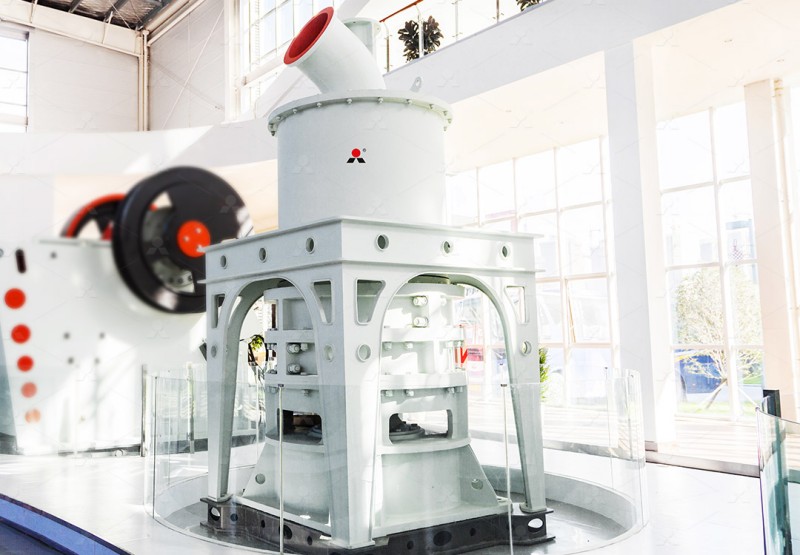Sic Raymond Mill: Efficient Grinding Solutions for Silicon Carbide Powder
Sic Raymond Mill: Efficient Grinding Solutions for Silicon Carbide Powder
Silicon Carbide (SiC) powder represents one of the most challenging materials to process in modern industrial applications. Known for its extreme hardness—second only to diamond and boron carbide—and its thermal stability, SiC demands grinding equipment that combines robust construction with precision engineering. The unique properties that make SiC valuable in applications ranging from abrasives and cutting tools to semiconductors and refractory materials are the same properties that pose significant challenges during the milling process.
![]()
Traditional grinding mills often struggle with SiC’s abrasive nature, leading to accelerated wear of components, contamination of the final product, and inconsistent particle size distribution. The key to successful SiC processing lies in understanding the material’s characteristics and selecting equipment specifically engineered to handle its demanding requirements.
The Challenges of Silicon Carbide Grinding
Processing SiC powder presents several distinct challenges that must be addressed by any grinding solution:
- Extreme Abrasiveness: SiC’s hardness rating of 9-9.5 on the Mohs scale causes rapid wear of conventional mill components
- Thermal Management: The grinding process generates significant heat that can affect material properties
- Particle Size Control: Many applications require precise particle size distributions with minimal contamination
- Energy Consumption: The hardness of SiC translates to high energy requirements for size reduction
Advanced Grinding Solutions for Demanding Applications
After extensive research and field testing, our engineering team has identified specific mill configurations that excel in SiC processing. The MW Ultrafine Grinding Mill has demonstrated exceptional performance in handling silicon carbide powder, offering several advantages specifically relevant to this challenging material.

The MW Ultrafine Grinding Mill’s innovative design addresses the core challenges of SiC processing. With an input size capability of 0-20 mm and capacity ranging from 0.5-25 tph, this machine provides the flexibility needed for various production scales. The absence of rolling bearings and screws in the grinding chamber eliminates common failure points when processing highly abrasive materials like silicon carbide.
What truly sets the MW Ultrafine Grinding Mill apart for SiC applications is its adjustable fineness between 325-2500 meshes, coupled with the German technology cage-type powder selector. This ensures precise control over particle size distribution—a critical factor for SiC used in precision applications such as semiconductor manufacturing or advanced ceramics.
Technical Innovations for Superior SiC Processing
The MW Ultrafine Grinding Mill incorporates several proprietary technologies that make it particularly suitable for silicon carbide:
- Enhanced Grinding Efficiency: Newly designed grinding curves of grinding roller and grinding ring increase production capacity by 40% compared to jet grinding mills while reducing system energy consumption to just 30% of jet mill requirements
- Contamination Prevention: The unique chamber design prevents metallic contamination, crucial for maintaining SiC purity
- Environmental Compliance: Integrated pulse dust collector and muffler systems ensure operations meet stringent environmental standards
- Operational Reliability: External lubrication systems enable 24-hour continuous operation without shutdowns for maintenance
For operations requiring even finer control or dealing with particularly challenging SiC feedstocks, the LUM Ultrafine Vertical Grinding Mill presents an excellent alternative. With its advanced powder separating technology and unique roller shell design, the LUM mill achieves superior product whiteness and cleanliness—critical parameters for high-value SiC applications.
![]()
Optimizing Your SiC Grinding Operation
Successful SiC powder production extends beyond equipment selection. Proper system configuration, feed preparation, and operational parameters significantly impact final product quality and operational efficiency. Our technical team recommends comprehensive material testing to determine optimal machine settings for specific SiC varieties and target applications.
The integration of digital control systems in modern grinding mills enables precise adjustment of key parameters, allowing operators to fine-tune the process for different SiC grades and customer specifications. This level of control, combined with the mechanical advantages of specialized grinding systems, represents the current state of the art in silicon carbide processing.
Frequently Asked Questions
What makes silicon carbide particularly challenging to grind?
Silicon carbide’s extreme hardness (9-9.5 Mohs) and abrasive nature cause rapid wear of conventional mill components. Additionally, the material’s thermal properties require careful temperature management during processing to prevent affecting the final product characteristics.
How does the MW Ultrafine Grinding Mill address SiC’s abrasiveness?
The MW Mill features a unique chamber design with no rolling bearings or screws in the grinding area, eliminating common failure points. The grinding components utilize specialized wear-resistant materials, and the external lubrication system prevents contamination while enabling continuous operation.
What particle size range can be achieved with your recommended mills?
The MW Ultrafine Grinding Mill can produce SiC powder with fineness adjustable between 325-2500 meshes, with the capability to achieve d97≤5μm in a single pass. The advanced powder selection system ensures tight particle size distribution control.
How does your equipment handle the heat generated during SiC grinding?
Our mills incorporate optimized airflow systems that effectively manage process temperatures. The grinding chamber design promotes efficient heat dissipation, and the integrated air classification system helps control thermal effects on the final product.
What maintenance requirements should we expect when processing SiC?
While SiC is inherently abrasive, the MW Mill’s design minimizes maintenance needs. The external lubrication system allows for maintenance without shutdown, and the durable construction of wear parts extends service intervals. Our comprehensive spare parts support ensures minimal downtime when maintenance is required.
